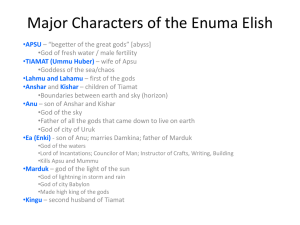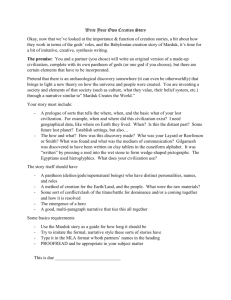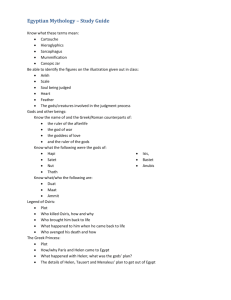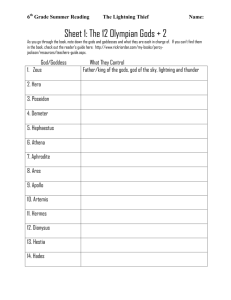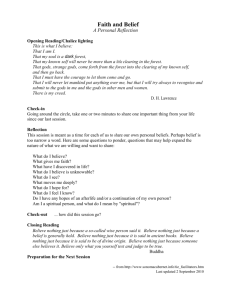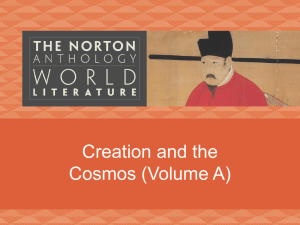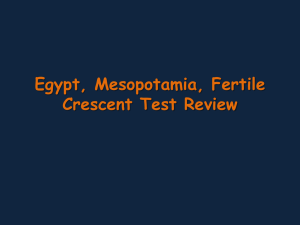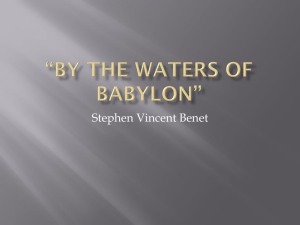I.~i- Powell, Barry B. Classical Myth. 2001 Prentice Hall, NJ.
advertisement
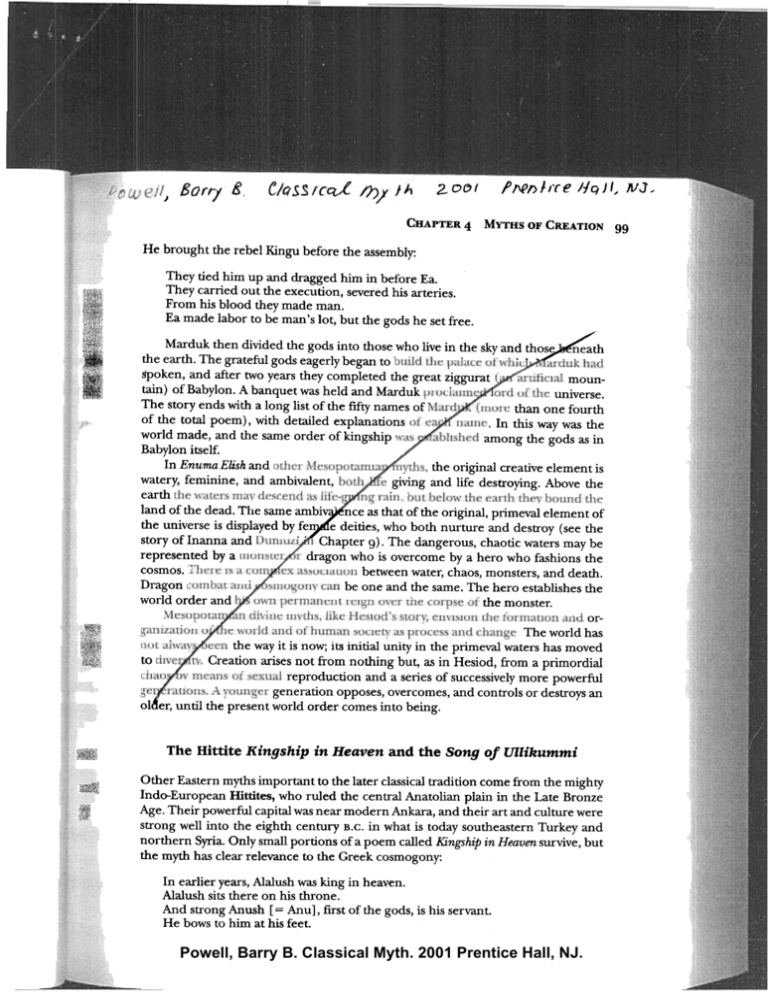
CHAPTER 4 MYTHS OF CREATION He brought the rebel Kingu before the assembly: They tied him up and dragged him in before Ea. They carried out the execution, severedhis arteries. From his blood they made man. Ea made labor to be man's lot, but the gods he setfree. Marduk then divided the gods into those who live in the skyand th~th the earth. The grateful gods eagerlybegan to ' ,. spoken, and after two years they completed the great ziggurat moununiverse. :~~"~~, tain) of Babylon. A banquet washeld and Marduk The story ends with a long list of the fIfty names of than one fourth of the total poem), with detailed explanations .In this way was the world made, and the same order of kingship among the gods as in Babylon itself. In Enuma Elishand .the original creative element is watery, feminine, and ambivalent, giving and life destroying. Above the earth land of the dead. 1ne sameambi~nce as that of the original, primeval element of the universe is displayed by fe~e deities, who both nurture and destroy (see the story of Inanna and ..Chapter 9). The dangerous, chaotic waters may be represented by a dragon who is overcome by a hero who fashions the cosmos. between water, chaos,monsters,and death. Dragon be one and the same.The hero establishesthe world order and the monster. I orThe world has the way it is now; its initial unity in the primeval waters has moved to Creation arises not from nothing but, as in Hesiod, from a primordial reproduction and a series of successivelymore powerful generation opposes,overcomes,and controls or destroysan ol~er, until the present world order comesinto being. The Hittite Kingship in Heaven and the Song of Ullikummi Other Eastern myths important to the later classical tradition come from the mighty Indo-European Hittites, who ruled the central Anatolian plain in the Late Bronze Age. Their powerful capital was near modern Ankara, and their art and culture were strong well into the eighth century B.C. in what is today southeastern Turkey and northern Syria. Only small portions of a poem called Kingship in Heaven survive, but the myth has clear relevance to the Greek cosmogony: In earlier years,Alalush was king in heaven. Alalush sitsthere on his throne. And strong Anush [= Anu], first of the gods,is his servant. He bows to him at his feet. I~ ..PNt>} ,c e IIq J'" J\/J, 2- DC} I J .~i Powell, Barry B. Classical Myth. 2001 Prentice Hall, NJ. 99
